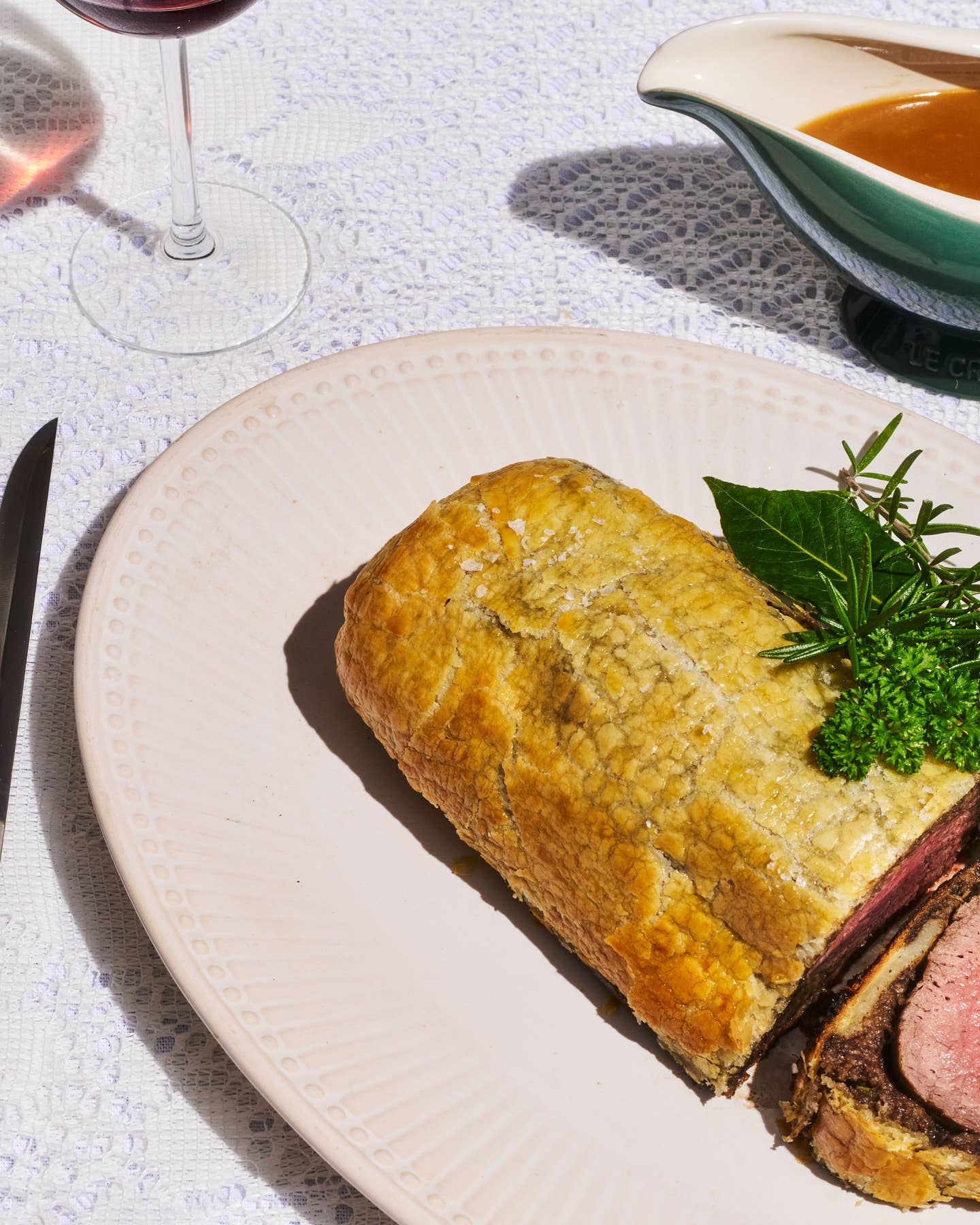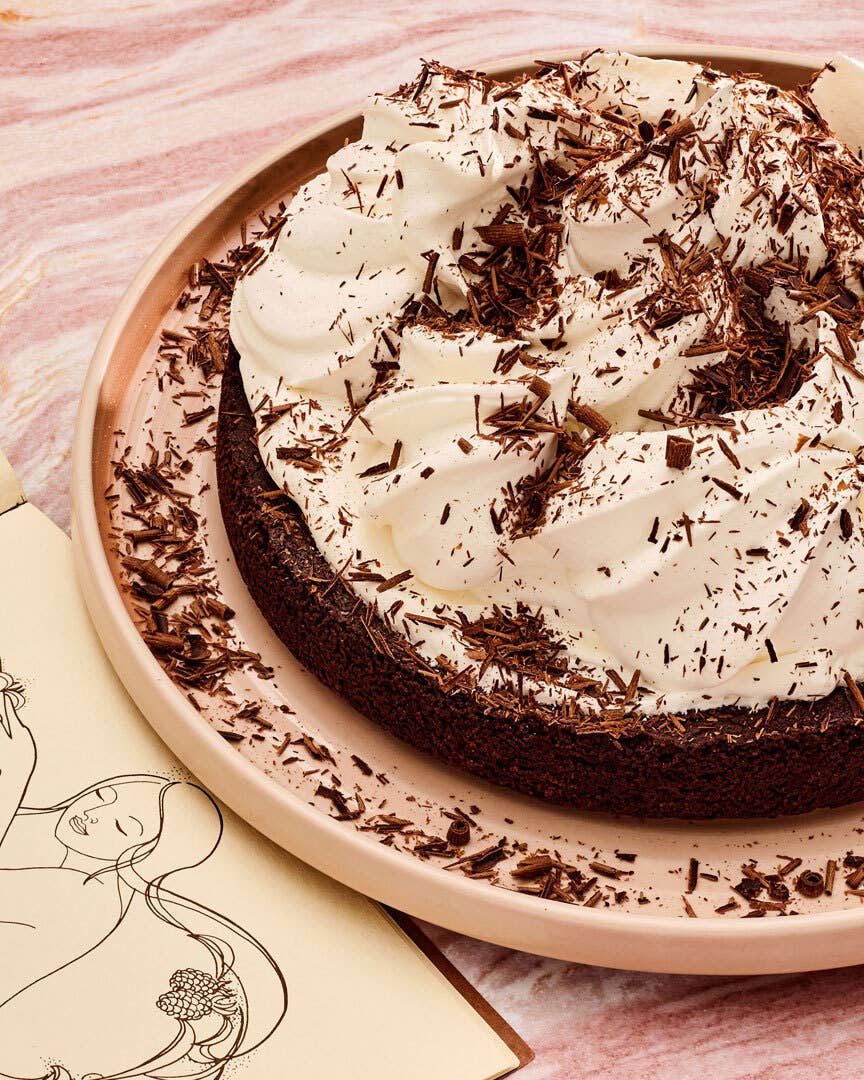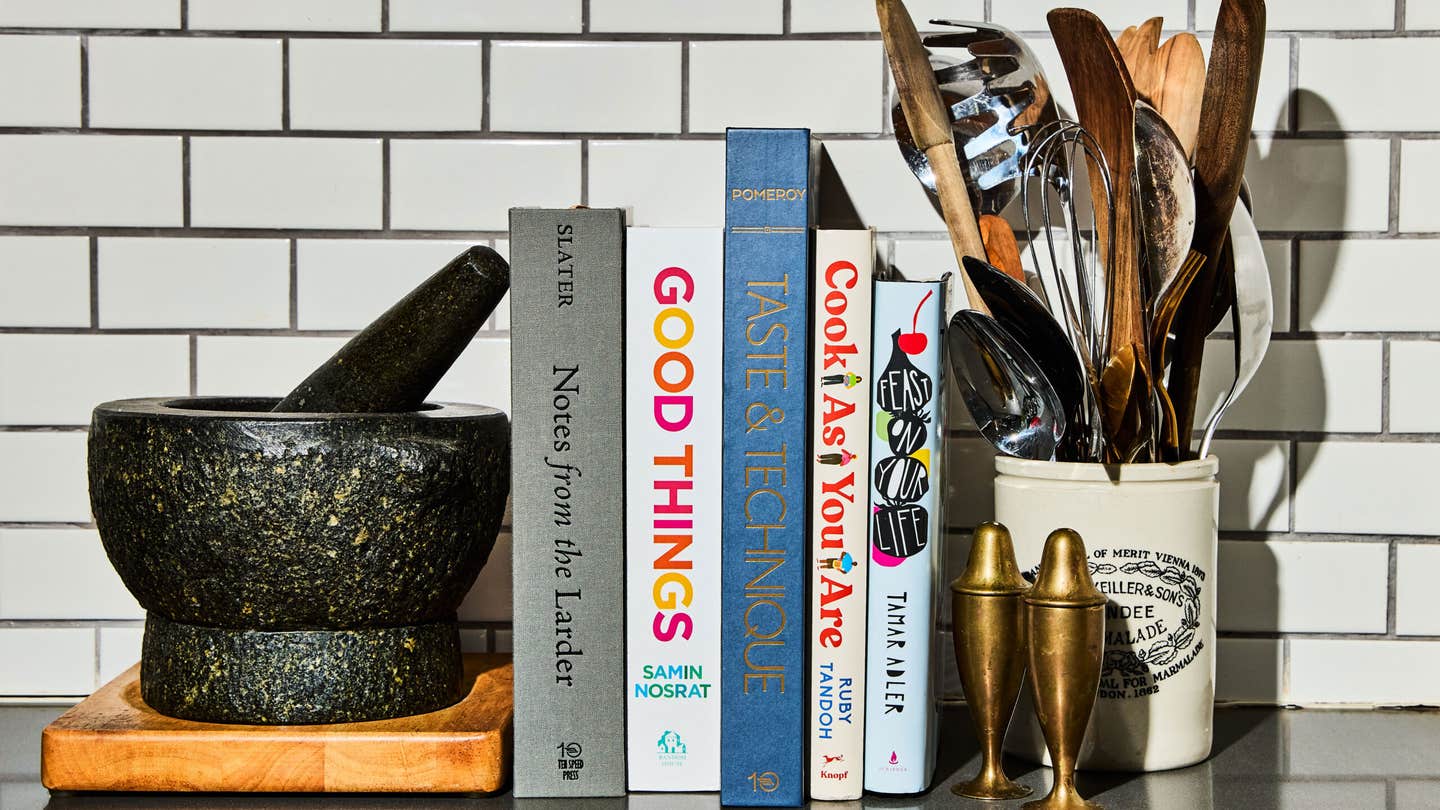
What Happens to Your Brain and Body When You Quit Sugar for 30 Days?
Jacqueline Raposo expected some drastic changes, but not the ones she wound up going through, so she hit up a neuroscientist, a doctor, and a sugar journalist for advice

I have a nerdy tendency to test how outside stimulants affect my body.
It stems from a serious history with illness: I got Lyme disease when I was 12 and have been treated for it and various effects over the years since then. But I also love the idea that you can change things you don’t like about your life with a little hard work and discipline.
In June, frustrated with an addiction to social media, I went off of it for 40 days. Revitalized by the thrill of facing the real world around me, I launched into a yearlong project I've cheekily titled My Year of Abstinence, where I quit a similar habit cold-turkey for a 30- to 90-day challenge and observe how it affects my social interactions, health, and satisfaction with my sense of self.
With the recent hoopla over the dangers of sugar combined with my years of regulating my diet to manage my illness, I figured just cutting out the sweet stuff would be a comparable walk in the park. I primarily eat whole, healthy foods, and my sugar intake comes mostly from fruit, wine, and slivers of Tate's gluten-free brownies. How hard would it be? So on November 5th, I gave up natural and artificial sugars and alcohol for 30 days.
Some drastic things happened. But not what I expected.
Doping on Dopamine

In pre-cold-turkey research, I read dozens of essays warning me of impending withdrawal headaches and cravings in the first few days. Friends responding to my preparatory Instagram post shared their own horror stories, with one warning she'd passed out after only eight hours. But nothing dramatic happened in my first few days; I had no withdrawal symptoms at all. On day three I noticed a mild sugar craving accompanying flared joint pain and dehydration, but it quickly ebbed when I ate some protein and increased my fluid intake.
Then on day five, my grandmother was hospitalized and the election happened. Two days later, a brief romance ended, I got a cold, and then an eye infection. I spent the weekend giving the brownies in my freezer the stink eye (the eye that could open) and whining for a hot toddy to soothe my burning throat. Suddenly an emotional beast unleashed from inside me, raging in a fit of fury I’d never known in my 35 years. In the shower, I cried out my well of despair.
Studies have shown that eating sugar releases dopamine in the brain. Dopamine helps us register pleasure. In some people, the pattern triggers an addictive reaction and, when the brain is denied its fix, dopamine levels plummet. Could I (please) blame my dramatic emotional state on my sugar abstinence?
"In our studies we've seen that people who are casual sugar eaters or on a regularly low-sugar diet don't show signs of withdrawal or that opioid response," said Dr. Nicole Avena. She's a neuroscientist and expert in the fields of diet, nutrition, and addiction whose studies support the sugar-dopamine-addiction argument, so I approached her for insight into what was happening with my body.
“I don't think you were engaging [with sugar] in a way that was physiologically altering your brain,” Dr. Avena went on, “to put you in a state that when you didn't have it you went into this withdrawal mode and would feel very disturbed. Based on what you're telling me about your diet history, it was more a psychological component.”
Okay, I was just having a particularly horrid week. The raging beast passed on a few days later, anyway. But then came the weight change.
Tipping the Scales

I have inflammation issues. For the past few years, I've described my extra inflammation pounds as "feeling puffy from the inside out" or like I was "walking around inside a me suit." In the last two years alone, I've done serious sleuthing and diet management to get to the bottom of this, including aggressive elimination diets and a not covered-by-insurance-ALCAT test to find out which specific foods cause inflammation in my particular white blood cells. Many chronic illness acquaintances of mine noted massive positive changes under the same trials, but through it all I felt just as puffy, and the numbers hadn't budged on the scale.
But in one month of kicking sugar I lost nine pounds and that “me suit.” My appetite dropped and I felt full faster. Was my brain telling me I just wasn’t as hungry as I’d thought I was?
“We know high-sugar foods…promote hedonic eating: eating for reasons other than hunger,” Dr. Avena explained, when I asked if my neuropathways might be clearly transmitting how many calories my sedentary body needs. We could only speculate, but she pondered: “In your experiment, you removed all your hedonically-driven foods that are high-sugar based…and that may have allowed you to sort of just feel what it feels like to only feel hungry when it’s out of the need of your body, not out of the emotional or pleasure need that's coming out of your brain.”
According to science journalist Gary Taubes, who's reported extensively on the effect of sugar his books Good Calories, Bad Calories; Why We Get Fat and The Case Against Sugar, it all comes down to insulin.
When we eat any food that breaks down into simple sugars—anything from wheat to apples—blood sugar level rises and the pancreas releases insulin to hammer the level down. Regarding weight, Taubes explained to me that his research shows insulin is “the dominant hormone that determines fat accumulation in the human body.”
“As insulin levels are coming down,” he went on, “your fat tissue tends to hold onto fat, and your lean tissue tends not to burn it until you hit some trigger point at which suddenly your fat tissue will start dumping calories into the bloodstream and your lean tissue will start burning it. Endocrinologists who study this will refer to your fat tissue as being exquisitely sensitive to insulin. So a tiny bit of insulin holds onto fat, and below that tiny bit, it doesn't. But how you define a tiny bit is different for everyone.”
That “tiny bit” distinction worried me. We discussed one of his cases, where a high school student ate the same diet as his friends but was morbidly obese until he cut out sugar and carbohydrates. Then of Taubes’ own brother, who he’s seen eat an estimated 5,000 calories at a meal, “leave with food in his hand that he would eat going home,” but then wouldn’t put on any fat. Taubes shared that scientists don’t know why some people can eat more sugar and not store fat while others can’t. But they agree that most people are so sensitive to insulin that they don’t easily burn the calories stored in their fat. It’s what’s known as “insulin resistance,” which is also called hypoglycemia.
There’s the rub. I’ve struggled with hypoglycemia since that first Lyme diagnosis, and I began to wonder if my sudden weight loss and vanishing inflammation could be attributed to these lower insulin levels.
So I reached out to Dr. Thomas Brunoski. He was the first doctor to add vitamin drips and an altered diet to my Lyme regimen back in the early ‘90s, and I hadn’t seen him for 20 years until this challenge. His conclusion as to the cause of both my reduced hunger and weight loss was clear: “You avoided the sugar!”
Post-Quitting Thoughts

By the end of my 30 days, I didn’t experience magical effects of clearer skin or superhero energy reported by friends on the Whole30 diet or those happy essayists claimed. But I could identify and manage the symptoms of my illness with more clarity. My head was more clear and it was easier to work (mostly because I was on the wagon, I’d guess). I also had more consistent energy. And I didn’t reach into my freezer for the Tate’s I’d stashed there, or hop to the bar for the bourbon. In fact, I didn’t tip my toe back into the alcohol pool until seven days after my trial period ended.
On day eight, after two glasses of white wine—Italian Vermentino, to be exact—I awoke at 3 a.m. with a massive dehydration headache, horribly painful and overheated joints, and thirsty as all get-out. The next day, I walked around in an angry fog. Should I have blamed the sugar or the alcohol?
None of my sources could give me a definitive answer.
“It’s hard to tease apart the effects of sugar versus alcohol when you drink wine because there is a lot of sugar in wine, especially white,” said Dr. Avena. “You probably just became more sensitive to it because you hadn't had any alcohol and sugar in a while. I bet if you had two glasses the next day you wouldn't have felt the same effect.”
Taubes shared the same hypothesis, but only as a personal guess. Playing “the journalist card,” as he called it, he explained that researchers and biochemists disagree whether or not sugar and alcohol metabolize the same way in the liver, so there is no definitive answer as to which is more harmful. Dr. Brunoski blamed a combination of “sugar, alcohol, and no doubt a toxic reaction to the congeners in the wine. They're what give you the headache, the splitting hangover, make you swell up.” I didn’t leave that appointment confident to try drinking again any time soon.
In fact, a month later I still hadn’t regularly added sugar back into my diet. I was enjoying the weight loss, the clearer head, and how well I slept through the night. When I eventually attempted another two glasses of white, I was oddly okay. Did my body eschew Italian Vermentino for French Chardonnay? Did I eat more to cushion the blow, or did it have to do with a difference in the sugar content or fermentation process?
I still don’t have any clear-cut medical answers. Avena admitted that people with histories and eating habits like mine are the exception, not the rule, and therefore studies on how these kinds of stimulants affect me just haven’t been done. Taubes pointed out flaws in the studies overall; there’s an absence of controlled variables, such as testing how sugar affects bodies not already acclimated to it. With this kind of human trial, it’s hard to make firm conclusions. And Brunoski would have me start over and eliminate the rice and potato chips still in circulation as well as the fruit and booze I’d already cut out, to see if there I’d notice a greater reduction in my body’s inflammation.
But I do know this. While I didn't have those withdrawal headaches and I didn't pass out in protest, I experienced drastic changes. In every abstinence challenge, I observe the effect of habit removal on three things: my body and health, my social interactions, and my overall satisfaction with my sense of self.
Bodywise, I’ve lost pounds I’ve tried to lose for years. On no-sugar days, I sleep soundly through the night, and my energy is more consistent while I’m awake. I eat because I’m hungry, and do so for nourishment.
Social interactions have been easier than I expected. Many people my age take breaks from alcohol, and I was 12 when Brunoski first took me off a laundry list of inflammatory foods, so I have more than 20 years of experience not eating while others dine, and it doesn’t slay me. People in my life are used to these kinds of tests at this point, anyway, and support anything that might help me feel better.
And as far sense of self goes, I realized that my hedonic brownies and booze were temporary emotional bandages for real human problems. Now, when life hammers me with something hard, I accept that there is a vulnerable, sad, furious beastly part of me that sometimes has to surface. I face what’s in front of me, deal with it, and move along. It hurts, and it’s hard, but if my trials with special diets had taught me that lesson, I would have at least been able to write off the three months as therapy.
Which brings me back to the start. When I blogged that I was Going Off Sugar For Thirty Days and Expecting No Miracles, I was jaded from those really complicated cleanses and programs that promised so much and delivered so little to my particular body. I don't question their efficacy—I'd read and heard enough firsthand success stories to make me try them. But I was disappointed and jealous when others showed results I didn't. That's why I'm jazzed by this weirdly specific journey. That's why I'm still on it; exploring how sugar shapes my world, and picking apart why and how it does as best I can.
“One of the learning experiences for all of us when you get into this,” Taubes laughed with me, “is how much we think we know is probably wrong.”
Keep Reading
Continue to Next Story











